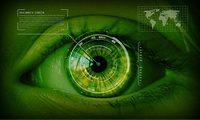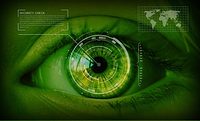Assemblymember Ting Proposes to Ban Facial Recognition in Policy Body Cameras

California could become the largest state to protect civil liberties by banning facial recognition technology in police body cameras. The California State Assembly sent Governor Newsom AB 1215, a proposal by Assemblymember Phil Ting (D-San Francisco) that prohibits law enforcement from equipping body cameras with facial recognition software and other biometric scanners for three years.
“Without my bill, facial recognition technology essentially turns body cameras into a 24-hour surveillance tool, giving law enforcement the ability to track our every movement. Let’s not become a police state and keep body cameras as they were originally intended – to provide police accountability and transparency,” said Ting.
In addition, "facial recognition systems are prone to mistakes," the press release says. The American Civil Liberties Union (ACLU) recently put the technology to the test, running photos of all 120 members of the state Legislature through a mugshot database. It falsely matched 26 lawmakers, including Ting. More than half of those falsely identified are lawmakers of color, "illustrating the biases and risks associated with the technology’s dangerous inaccuracies if allowed to subject people to perpetual police line-ups," says the press release. A similar test conducted on members of Congress last year also produced 28 mismatches.
“Face-scanning police body cameras have no place on our streets, where they can be used for dragnet surveillance of Californians, our locations, and our personal associations,” said Matt Cagle, Technology and Civil Liberties Attorney for the ACLU of Northern California. “AB 1215 helps ensure Californians don’t become test subjects for an invasive and dangerous tracking technology that undermines our most fundamental civil liberties and human rights.”
"False matches led Axon, one of the largest manufacturers of police body cameras, to bar facial recognition programs in its products. Microsoft also had the same concerns, particularly the high error rate among women and people of color, when it declined to sell facial recognition software to a California law enforcement agency," says the press release.
Local Bay Area cities are also troubled by the implications of the echnology. In May, San Francisco became the first city in the U.S. to block the use of facial recognition technology by police and other city agencies. Somerville, MA and Oakland followed weeks later. All three city bans go further than AB 1215, which only applies the ban to police-worn body cameras.
Looking for a reprint of this article?
From high-res PDFs to custom plaques, order your copy today!






